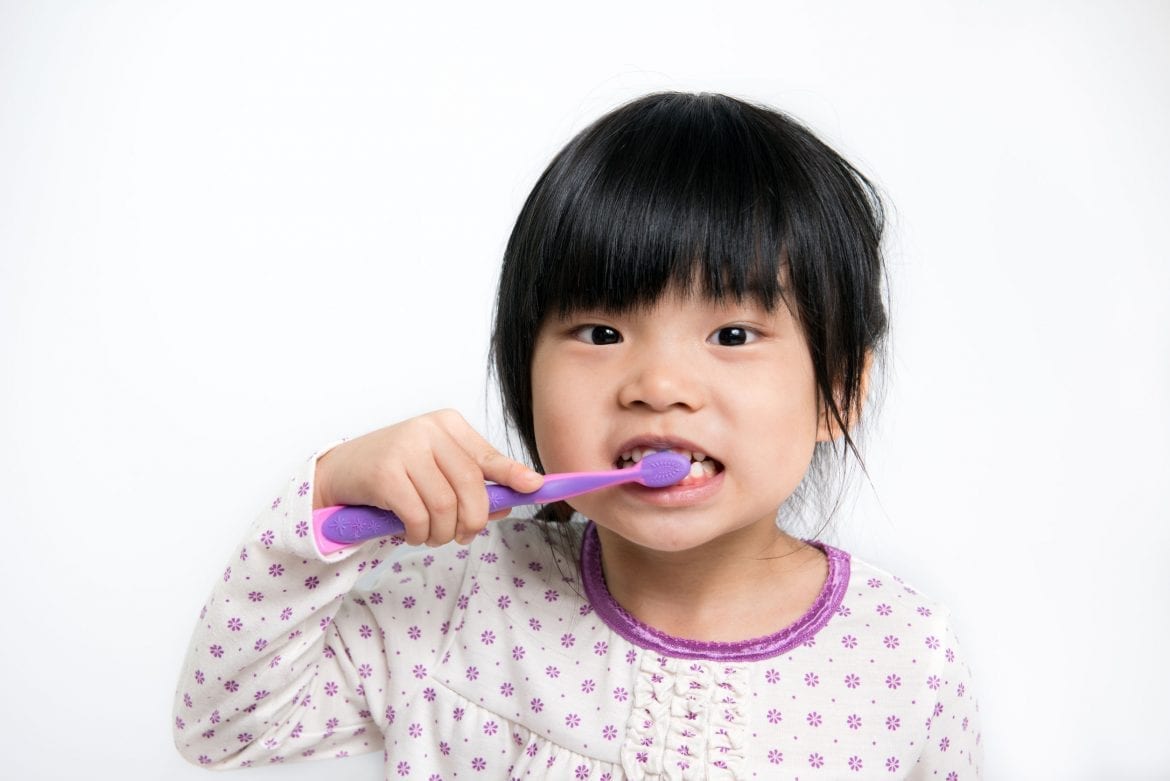While you may bristle at the idea of getting into the dentist’s chair, twice-yearly checkups to prevent a cavity don’t have to get your child down in the mouth.
Debra Glassman, DDS, of Glassman Dental Care in New York City says prevention is key. “Start early and instill good habits. When parents set good examples, it promotes oral health for the family. Start young on the path to be cavity free for life.
Tooth Basics for Babies
Dental health is important for all ages—including little ones whose tooth buds are still encased in their gums! “Rub a xylitol-containing gel on your baby’s gums to kill cavity-causing bacteria,” says Glassman. “Massaging the gums feels good for baby and stimulates blood flow.” Clean baby’s gums after each feeding.
Prevent tooth decay—and skip the choking hazard—by never putting your older baby down with a bottle for nighttime or naps, or substituting a bottle for a pacifier. “Milk or food remnants feed bacteria in the mouth, leading to decay,” says Glassman. Cavities can be catching, too: “Never clean baby’s pacifier by putting it in your own mouth—this just transfers bacteria,” she advises. Instead, keep bottled water on hand for quick rinses.
Healthy Toddler Teeth
Baby teeth begin to emerge around 4-6 months, with all 20 appearing by the time your child is 3 years old. Many parents typically meet with a pediatric dentist when those 1st teeth appear. Getting them into the dental chair early, meeting the dentist and having a positive experience goes a long way toward a good oral health.
Even though your child will lose her baby teeth, they still require proper care. “Without good oral hygiene, teeth can decay and fall out early, causing crowding,” explains Glassman. “Healthy baby teeth lead to healthy permanent teeth.” Even as baby teeth begin to cut through, use a soft, cold brush to ease teething; once they’re fully in, floss! Many pediatric dentists now also recommend sealants for extra protection against decay.
Beyond Baby Teeth
Most kiddos begin to get their permanent teeth around age 6 and have nearly all of them—except their wisdom teeth—by age 13. “Children and adults should visit the dentist every 6 months, or twice a year,” says Glassman. Brushing twice and flossing once a day is vital, but she also recommends brushing after every meal, as possible. If you don’t have easy access to your brush, bottled water is your friend: “Simply sip, swish and swallow to get any residue off your teeth.”
Oral Care in Pregnancy
Before your baby is ever born, it’s important to protect your oral health as poor hygiene has been linked to low birthweight, preterm birth and preeclampsia. Talk to your healthcare provider about any dental procedures you may need in pregnancy, and always brush gently, as your gums may be tender and more susceptible to bleeding.
Replace toothbrushes at least every 3 months or after an illness: Bacteria can linger long after you or your child starts to feel better.
Food as Floss
Avoid sugary snacks and simple carbohydrates to maintain a healthy mouth as they break down quickly into glucose, feeding the bacteria that cause cavities. “Potato chips can be just as harmful as licorice! Fruits and veggies are great, as well as cheese; it’s soft to chew and gently scrubs away plaque,” says Dr. Glassman.

Comments are closed.